#i think lynch!dune can stand on its own but it's hard to watch as a book fan when my favorite bits were cut out :')
Note
oh please share your share your thoughts on dune! i'm only partway through children of dune but it's been so interesting. everyone is so unwell but i like it that way.
okay so full disclosure. while i've re-read OG dune about once per year ever since i first picked it up when i was 11 years old (so 20+ times), i've only read dune messiah and children of dune once each... i think i watched the children of dune mini series more recently than i've read the book (-_-;)
what i'm obsessed with about dune is the world that herbert built and the snippets of princess irulan's books that head up each chapter. i just absolutely adored that level of detail and it gave me a huge amount of appreciation for what depth of worldbuilding you could do within a story. this is still the part that i have a deep love for but over the years i've come to also have a deep appreciation for the social and political allegory of dune that i definitely did NOT get when i first read it and it really wasn't until late high school/college that i started to really dig into that part of the book.
i feel like this is a bit of a letdown answer. sorry!
#fun fact: it's a bit hazy but i read dune either a week or two before 9/11 or a week or two after which meant i came into discussions#about 9/11 with a very different context for the word 'jihad' vs other students when we had to talk about it in school#it's why i refuse to watch villeneuve dune: crusade and jihad aren't really interchangeable and that being in the trailer was a big turn of#at least the lynch version basically sidesteps the politics & allegory of the book???? it's my favorite part but i'd rather that#a director skip the politics than do it incorrectly bc the political allegory and commentary of dune is so exact#tho of course maybe lynch did include it and laurentiis cut it. lynch!dune is a movie i'd love a true directors cut for.#i don't even *like* david lynch's work in general but i'd be fascinated to see the 4hr+ cut he's talked about#ask a brain problem#i think lynch!dune can stand on its own but it's hard to watch as a book fan when my favorite bits were cut out :')
1 note
·
View note
Text
Ranking : David Lynch (1946-present)
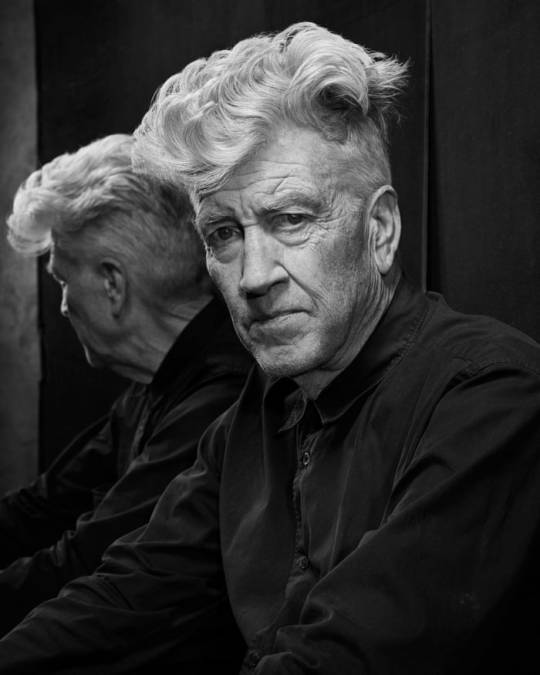
Film is definitely an art, and yet, it seems to be distinct from other forms of visual art such as painting or sculpture. Perhaps that is what makes David Lynch such a fascinating director, as he has the ability to tap into the surreal stimulus often found in the most famous paintings and transform it into brain-bending moments on film. Whether it his fear-fueled fascination with fatherhood present in his debut film Eraserhead, his ruminations on Hollywood society present in Inland Empire, or any of the stopping points in-between, it’s safe to say that David Lynch sits in the rarified air of directors like Ingmar Bergman, Alejandro Jodorowsky and the other few who can turn film into something deeper, more visceral and more meaningful.
With one of the most unique collections of films credited to his name, including a couple of curveballs in the early portion of his career, ranking the films of David Lynch is as perplexing as it is entertaining... so, without further ado, we attempt to climb that hill. I’m not even going to pretend that I can break down all of the symbolism and meanings of these films, but I can give my honest opinion about them.
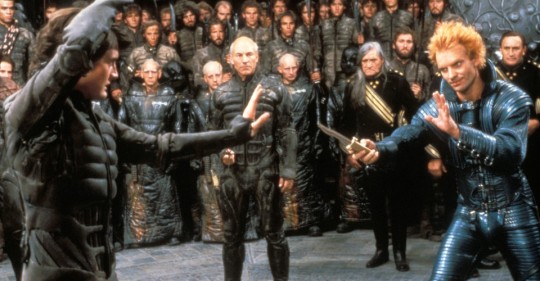
10. Dune (1984)
For a film that is supposed to be such a science-fiction gem, it’s a bit funny that nobody can seem to make a coherent, entertaining version of Dune. After nearly 15 years in pre-production hell (and three iconic names attached to versions of the production), the film landed in the laps of Dino De Laurentiis and Ridley Scott, but after another extended period delaying production, Scott bowed out, leaving the door open for David Lynch to step in. For what it’s worth, he did bring a huge list of names to the project, but the fact that the directing credit for Dune belongs to the throwaway pseudonym Alan Smithee should clue in any perceptive viewer that the project may not be one that Lynch cares to stand behind.
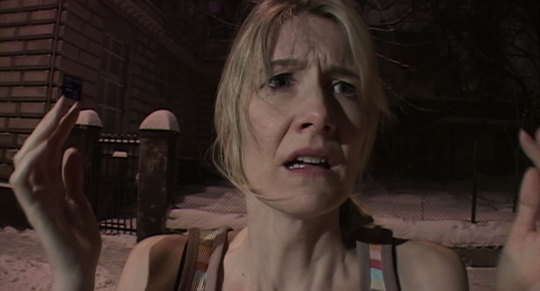
9. Inland Empire (2006)
David Lynch isn’t the type of director that revisit ground he’s already covered, which is what makes Inland Empire (the seemingly final film from Lynch) such a confusing choice. Had this film not been released after a five year gap between it and the stellar Mullholland Drive, another film that focuses on the dark underbelly of Hollywood, fame and the tolls of the acting craft, perhaps it would hit a little different to me. That’s not to say that the film isn’t good, as it is definitely a slight adjustment from the style that Lynch basically trademarked, but when a director like Lynch experiments on what feels like general principle, it makes experiments that feel like a step backward lose impact.
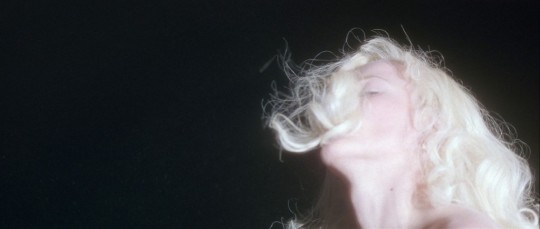
8. Lost Highway (1997)
Technically, you could count all of the Lynch “mystery” films as noir in some capacity, but Lost Highway feels like a direct skewing of what we know as the traditional noir structure. At its core, the film is a simple murder mystery, but it doesn’t take long for the Lynch signatures to begin appearing in every form from a mysterious, unnamed character to our protagonist literally changing into another person with no base explanation provided. Perhaps the latter choice was a look into split personalities and the disassociated nature that can come with brutal crimes... as I said before, I’m not here to try and decode the David Lynch mystery. While Lost Highway serves as a good entry point into the David Lynch catalog, it sits on the back half of the rankings due to no fault of its own... it’s more of a situation where the other mysteries are so stellar, that even the strange seems simplistic by comparison.
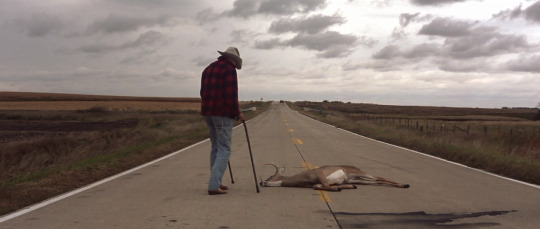
7. The Straight Story (1999)
If you played a game of “one of these things is not like the other” with the films of David Lynch, it would not be difficult to make a winning choice, as The Straight Story is clearly the most accessible and standard of all the Lynch fare. What the film lacks in oddness and style, however, is more than made up for in terms of heart and performance. The use of a lawnmower as the main source of travel allows for some beautiful landscape cinematography, and the sheer force of will exhibited by Richard Farnsworth pays off in spades when he is reunited with Harry Dean Stanton. If you’re looking for something creepy, eclectic and mind-warping from Lynch, there are plenty of other films to choose from, but if you are looking for an excuse to shed a tear or two, this is the film for you.
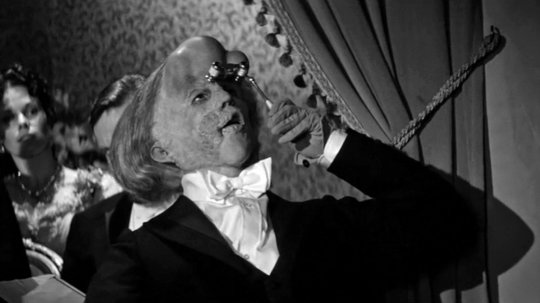
6. The Elephant Man (1980)
It’s funny to think that if not for The Straight Story, the Joseph Merrick biopic The Elephant Man would serve as the most normal film of the Lynch canon. This sophomore film dialed back on the abstractions present in Eraserhead, but it brought some extraordinary makeup and costuming to the table, not to mention it gifted viewers with a powerfully moving performance from John Hurt. Though memorable in its own right, the film really made its mark by tying Raging Bull at the 53rd Academy Awards, garnering eight nominations (and sadly losing in all categories, going home empty-handed). The backlash for the Academy’s lack of giving The Elephant Man special praise for its makeup effects also led to the creation of a Best Makeup award for the Oscars. It is quite possible that the combination of shock from Eraserhead in tandem with the skill and prowess shown in The Elephant Man opened all of the creative control doors for David Lynch, as not even Dune could derail his career and artistic oddness.
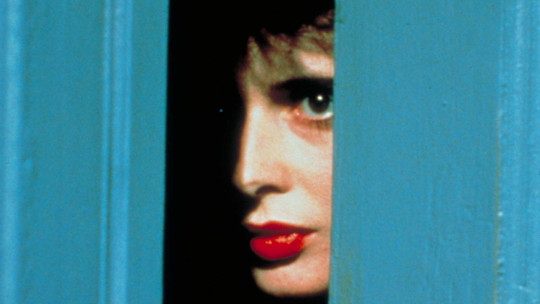
5. Blue Velvet (1986)
While Twin Peaks is where I first heard the name David Lynch, it was Blue Velvet where I first got a taste of why Lynch was held in such high regard. The suburban paradise presented in the opening credits is immediately shattered by the discovery of a random ear, and the weirdness rabbit-hole gets deeper and deeper from that point on. The classic look of the film stands in powerfully beautiful contrast to the extreme darkness of the narrative, and Dennis Hopper turned it all the way up to 11 for his performance in the film. If Lost Highway serves as the best introductory film for those curious about Lynch, then Blue Velvet serves as a good midpoint to determine how much weirdness, abrasiveness and shock you can handle in a Lynch film.
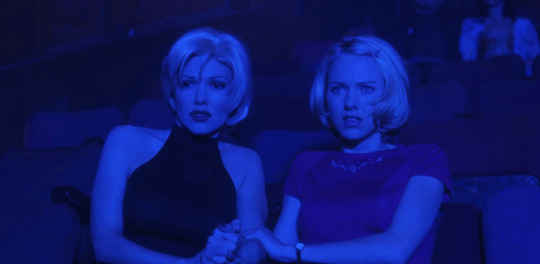
4. Mulholland Drive (2001)
I really and truly do not know where to begin with this insane rollercoaster ride of a film. The first time I watched this film, I thought I had everything figured out, every mystery solved and every bait and switch identified, but upon repeat viewings of Mullholland Drive, I’ve determined that I either had a brief moment of harmonic brilliance or I was fooling myself. The film makes sense at its root, if really and truly dissected, but when taken at face value and in real time, it’s almost impossible not to get completely lost in the sheer immersive nature of everything thrown at you. Naomi Watts is brilliant as the viewer guide through the film, and it’s good that she is so powerful in her lead role and guiding task, because Mullholland Drive is not afraid to get downright bonkers on more than one occasion. While films about the trappings of Hollywood and stardom are nothing new, I’m hard pressed to think of another film that approaches these in a manner even remotely close to that of Mullholland Drive.
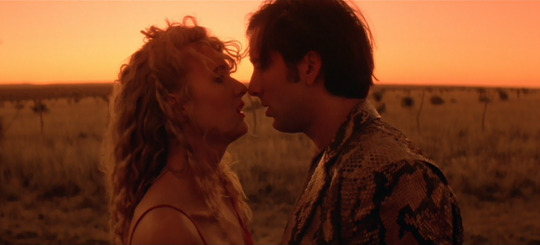
3. Wild at Heart (1990)
Quite possibly the most enjoyable of all the David Lynch films, despite some downright brutal moments of celebratory violence sprinkled throughout. The combination of Nicolas Cage and Laura Dern is nothing short of electric, and the presence of Willem Dafoe as antagonist is the perfect spark to ignite an already volatile mixture of leads. The energy level of this film starts on ten and only continues to rise as the film progresses. If/when I ever get the chance to program theater showings, I am putting this film on a double bill with Natural Born Killers immediately. While I can’t say that Wild at Heart is my favorite David Lynch film, I can say without a shadow of a doubt that it’s my favorite Lynch film to gush about with other fans.
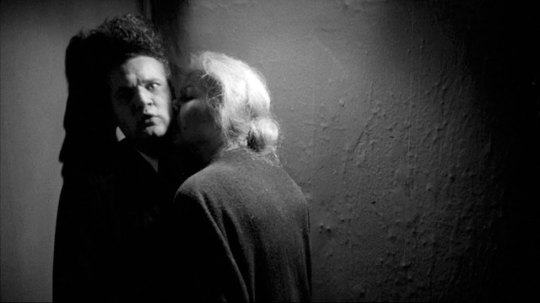
2. Eraserhead (1977)
More often than not, directors the caliber of David Lynch have stunning debut films to their name, and Lynch certainly exploded onto the scene with a gamebreaker in the form of Eraserhead. Upon first viewing, there is enough “WTF?!” going on to confuse most people, but for those brave enough to watch the film more than once, it becomes painfully obvious that all of the madness and shocking imagery on display is a clear metaphor for Lynch’s fear of fatherhood. The simple act of taking a fear that resonates with most humans and turning it into the equivalent of a black and white bad drug trip works perfectly, and Jack Nance’s iconic look and performance are almost recognizable enough to know without knowledge of the film. Eraserhead is one of those films that leaves you different than you were prior to watching it.
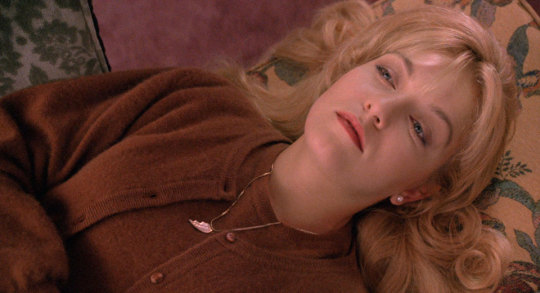
1. Twin Peaks : Fire Walk with Me (1992)
In all honesty, was there every any doubt that Twin Peaks : Fire Walk with Me wouldn’t be in the top spot? Of all the properties that the David Lynch name is connected to, none of them have even come remotely close to touching the sheer size of the lore and fandom that has emerged from this modern day masterpiece. The story of the high school princess with deep, dark secrets to hide is not new territory, but the way that Lynch handles it all with Twin Peaks takes the familiar to all new realms of weirdness, including the creation of iconic places and characters like the Black Lodge, the Log Lady, the production mistake that created the infamous Bob, and the eternally iconic Laura Palmer, and oh yeah, the film’s not half bad either. I doubt that David Lynch ever had any intention of reaching the heights of fame that Twin Peaks : Fire Walk with Me afforded him, but it would be dumb to think that he isn’t impressed with the magnitude of the world he created based on that single idea for a film.
#ChiefDoomsday#DOOMonFILM#DavidLynch#Eraserhead#TheElephantMan#Dune#BlueVelvet#WildAtHeart#TwinPeaksFireWalkWithMe#LostHighway#TheStraightStory#MullhollandDrive#InlandEmpire
25 notes
·
View notes